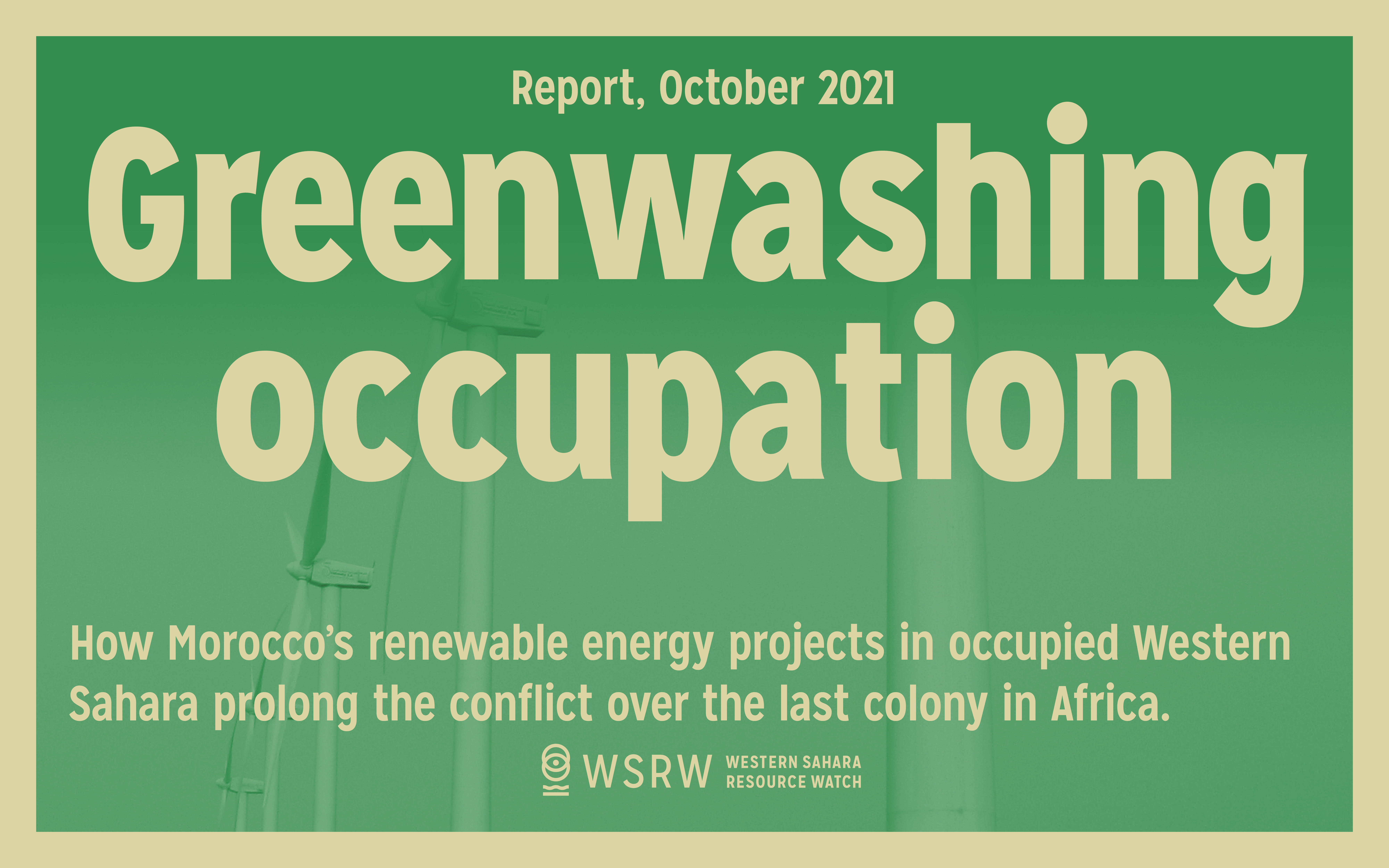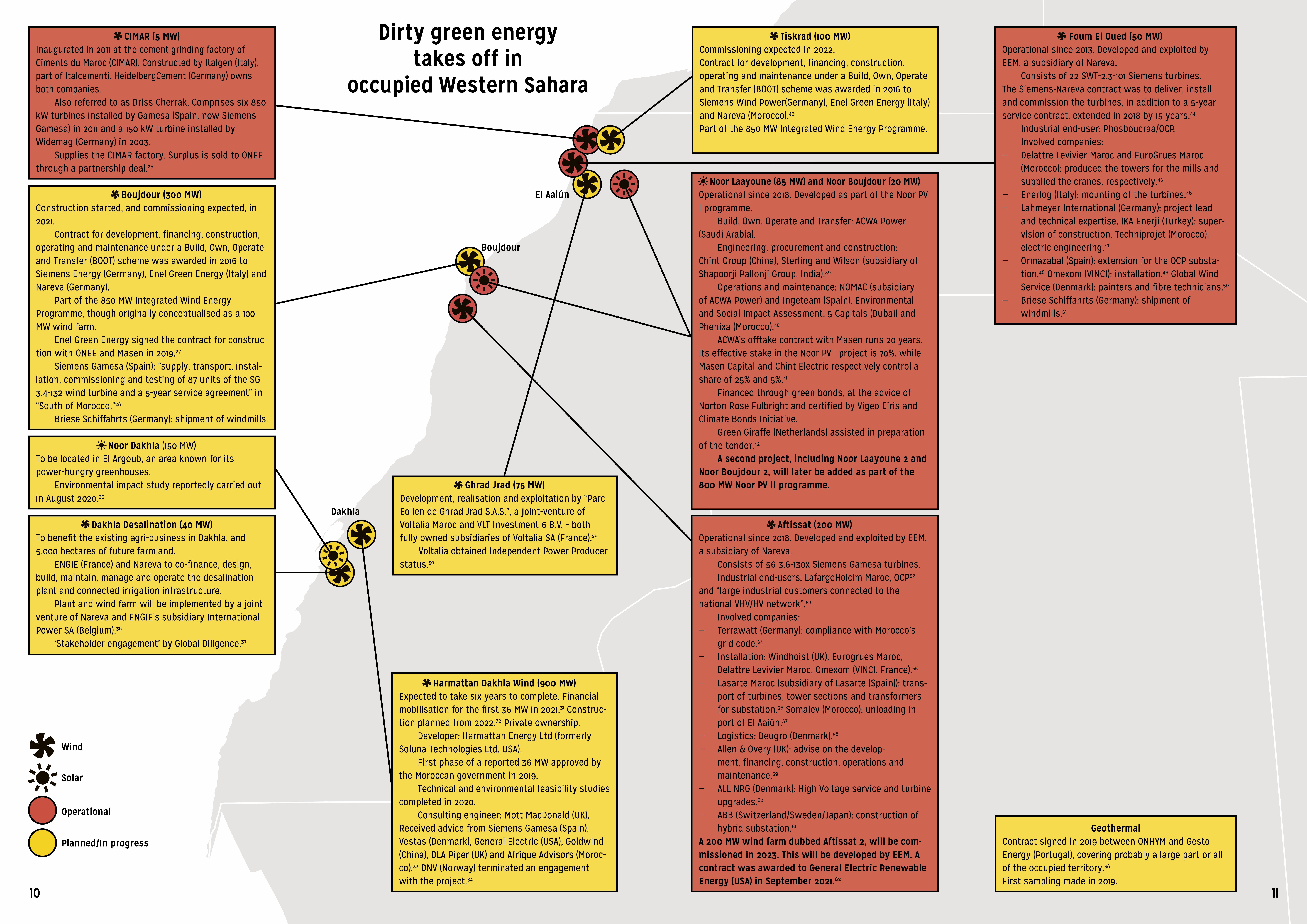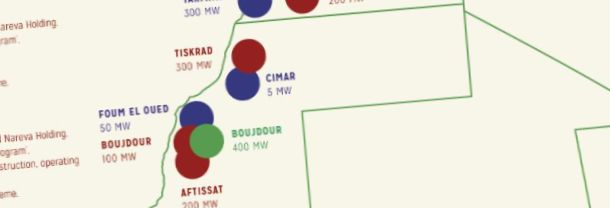
By 2030, half of Morocco's wind energy production could be generated illegally in occupied Western Sahara. Yet, Morocco presents itself as best-in-class on the energy transition.
In November 2021, the governments of the world will meet in Glasgow for the COP26 climate talks. At the same time, Morocco - the occupying power of Western Sahara - is erecting its largest energy project on occupied land to date: another step forward in its comprehensive plan to build controversial infrastructure on the land it illegally holds.
Western Sahara Resource Watch (WSRW) today publishes a report exposing all existing and planned renewable energy projects in occupied Western Sahara.
Download the report (6 Mb).
The report estimates that the energy produced from wind in the territory could constitute 47.20% of Morocco’s total wind capacity by the year 2030, while its share of generated solar power may by then reach 32.64% of Morocco’s total solar capacity.
As late as 30 September 2021, a new company, General Electric, announced an agreement to take part in the controversy.
The energy produced on occupied land increases Morocco’s dependency on the territory that it occupies. As such, the projects fundamentally undermine the UN peace efforts in Western Sahara directed towards allowing the expression of the right to self-determination of the Saharawi people. The energy is used by industries that plunder the territory's non-renewable resources, and provides job opportunities attracting more settlers from Morocco. It may also, in time, be exported abroad, including to the EU.
Morocco brands itself internationally as best in class on renewable energy as part of its commitments under the Paris Agreement. States, however, are only meant to present efforts undertaken in their own territory, not outside of their borders. The UN body that registers and reviews state parties’ achievements, the UNFCCC, claims that it is not in a position to assess the content of the submissions. The scandal of the UNFCCC’s complacency is, of course, compounded by the fact that Morocco’s energy projects can only be carried out under the military occupation that the UN’s central bodies have declared illegal.
None of the companies participating in the renewable energy industry inside Western Sahara, including those most heavily implicated - Italian company Enel and Spanish Siemens Gamesa - have clarified whether they have even tried to obtain the consent of the people of the territory.
Instead, the companies refer to an alleged ‘consultation’ of local ‘stakeholders’ or ‘population’. This is the exact same flawed approach taken by the European Commission in its trade and fisheries agreements with Morocco. The European Court of Justice ruled on 29 September 2021 that the EU’s approach in Western Sahara is illegal. The Court explicitly stated that the liberation movement Polisario is the representative of the Saharawi people, that consent must be obtained from them, and that a ‘consultation’ of the ‘population’ cannot substitute the legal requirement of Saharawi consent.
WSRW demands an immediate exit of all energy companies from the occupied territory, and asks the UNFCCC and its State Parties to challenge Morocco’s systematically erroneous climate reporting.
Download print version of the report (28 Mb).

16 firms prequalified to construct wind farms in Western Sahara
The Moroccan government's plans to develop wind farms in occupied Western Sahara have drawn the interest of 16 international companies.
Report: Moroccan green energy used for plunder
At COP22, beware of what you read about Morocco’s renewable energy efforts. An increasing part of the projects take place in the occupied territory of Western Sahara and is used for mineral plunder, new WSRW report documents.
Wind energy companies silent on controversial plans
In early July, WSRW contacted the energy companies that are pre-qualified to build windmills in occupied Western Sahara. The response has been meager.
Moroccan wind energy in occupied Western Sahara passing 40%
Even more wind farms are being planned in occupied Western Sahara, and all of them are in the portfolio of the Moroccan monarch's company NAREVA.


